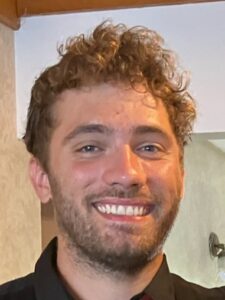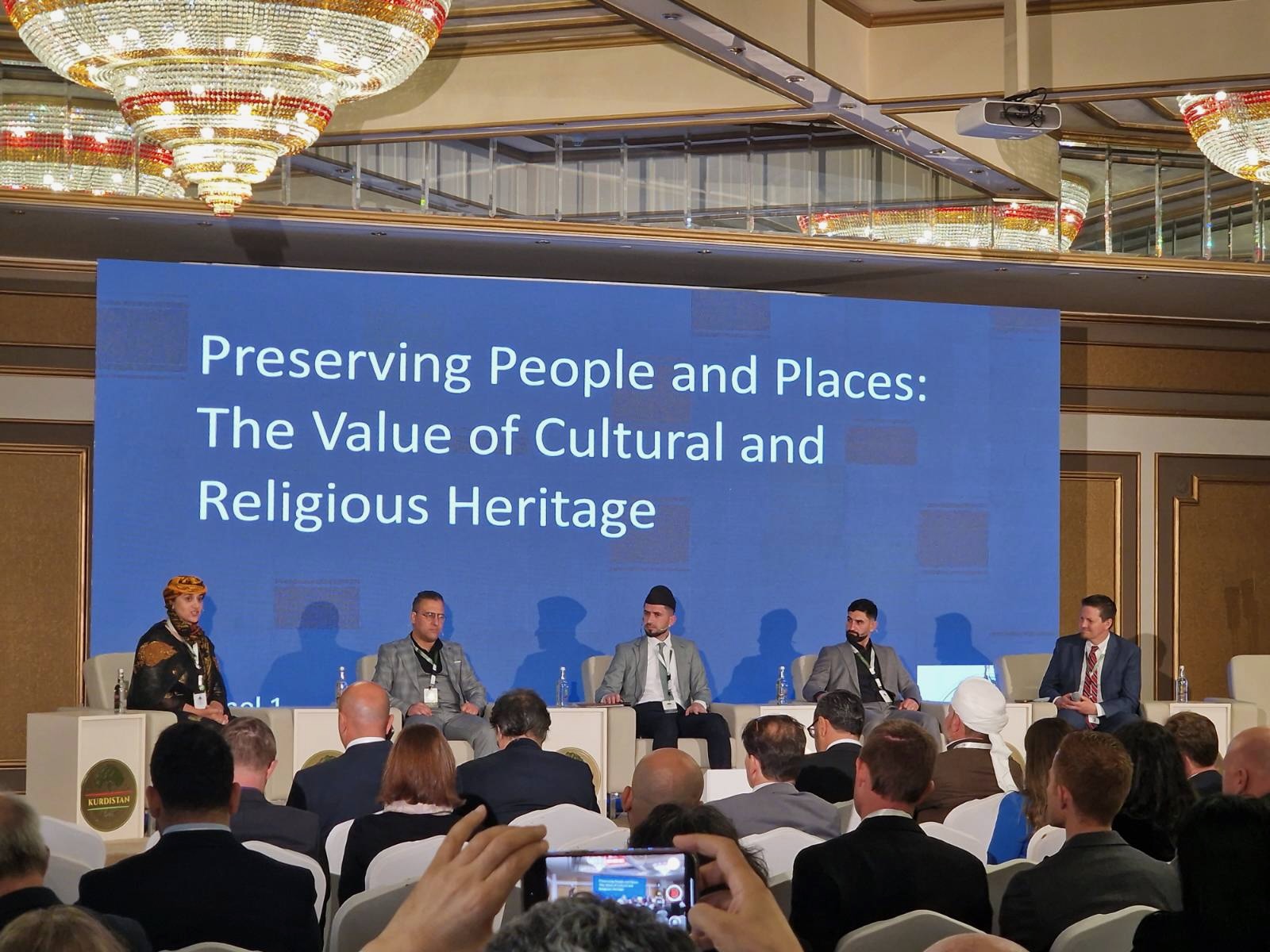How we understand the human person shapes our social mores, institutions, and laws.

There is a clear correlation between the rise of artificial intelligence (AI) and other emerging technologies and the attention given to bioethics. Bioethics—the study of defining what is moral with regards to science, medicine, and technology—must have, at its base, a working definition of the human person. It’s unavoidable. And since AI is supposedly meant to help us, it also requires a working definition of who it is that the technology is supposed to help. What should and shouldn’t be done with regards to certain technologies? The fact that something can be done does not mean it should be done. How should we think about the relationship between bioethics and the public good? How do presuppositions about the nature of the human person affect how we shape public policy and guard our most basic human freedoms? If humans possess certain freedoms simply by virtue of being human, we should know what a human person is.
At a recent event at The Catholic University of America’s inaugural conference for the Center for Law and the Human Person, Professor O. Carter Snead of the University of Notre Dame was the keynote speaker. He presented a rich lecture on how to have a better approach to public bioethics. If public bioethics means the “governance of science, medicine, and biotechnology in the name of ethical goods,” then it is critical to have a correct anthropology from which all law stems. If law reflects the goods that a people holds dear, as Snead argues, then our laws ought to reflect a normative view of the human person—one that is inconsistent with what Snead terms “expressive individualism.”
Expressive Individualism
It is expressive individualism, Snead asserts, that permeates our society and its laws today. Its false anthropological presuppositions have harmed the legal framework, and therefore the potential for human flourishing in American life. Snead, referencing his recent book What It Means to be Human, asserts that law and policy reflect a particular vision of the nature and trajectory of the human person. In echoing Alasdair MacIntyre, he succinctly articulates how expressive individualism “forgets the body” and ultimately seeks refuge in “autonomy,” relying on an absolutist principle of consent that stipulates the person as an isolated, unencumbered, atomized self defined by his or her will.
From this outlook, the human body is a mere instrument of the will. The highest pursuit of a person is to be freed from unchosen obligations in order to freely pursue projects of one’s own choosing—to discover one’s own original, authentic self. Within this understanding of the human person, it does not take long to reach the logical end of expressive individualism. It ultimately views the most vulnerable and those who do not fiercely pursue projects of self-actualization as not fully deserving the same dignity and respect as those who willingly embrace expressive individualism’s tenets.
Public Bioethics & Law
Public bioethics envelopes a wide array of issues. As Snead outlines, this field concerns issues relating to human vulnerability, dependency, human frailty, bodily finitude, procreation, pregnancy, children, illness, bodily injury, the disabled, the elderly, the dying, and those already dead. What our current form of public bioethics presupposes, he asserts, is that “autonomy” is the grounding principle. The unavoidable question for public bioethics—“Who are we and what do we owe to one another?”—is always, at least implicitly, expressed through law.
If law reflects the goods that a people hold dear, then contemporary American society does not cherish virtues of acknowledged dependence, like generosity, hospitality, and compassion; nor does it consider the virtues of gratitude, humility, or truthfulness to be fundamental to human flourishing and natural to our anthropological make-up. Rather, these virtues, and the very idea of love and friendship, or as Snead says, “to make the good of others our own without seeking anything in return,” are pushed aside in favor of a morbid anthropology that sees government’s role as removing all constraints in order for persons to assert an unencumbered self.
Expressive individualism fails to recognize the vulnerabilities of human life. It forgets children, the elderly, and the disabled, since they are less able to express themselves. There are also those who find the precepts of expressive individualism—with its grounding in the unhindered will and limitless self-discovery—as anathema to their own outlook on their nature and purpose in life. Expressive individualism sneers at those who would, out of love for one’s neighbor, put aside their own “quest for self-creation” to accept unchosen bonds and help those in need, including the elderly, the widow, and the poor.
Indeed, the false anthropology of the autonomous self that expressive individualism places on a high pedestal has serious implications for our most basic freedoms. In the Jewish, Christian, Islamic, and other religious worldviews, each human is made in the image of God—no matter their quality of life or their capability for “self-discovery.” Because of this truth, each man, woman, and child deserves to be loved and cared for in proportion to their needs. The reality is, conversely to expressive individualism, people regularly encounter unchosen obligations to care for others, and there is more to the meaning of life than “expressing our authentic selves.” If the role of government is to create and guard conditions suited for human flourishing, then accepting a vision of the human person that is embodied, and has natural limits and vulnerabilities ought to be implicit and undergird all laws.
What We Owe Others
Expressive individualism fails to account for, and even suggests a logic that disdains, human vulnerabilities, reciprocal dependence, and our natural limits. This ideology forgets that there are corrective goods, practices, and virtues that seek to address the fundamental question of public bioethics: “Who are we and what do we owe to one another?” For expressive individualism, the answer is that because we owe nothing to anyone, our legal system owes us free reign to pursue projects of our own choosing.
If we owe nothing to one another, then what is the place for agreed-upon freedoms? If we owe nothing to one another, and seek refuge in ourselves for a self-created autonomy, then how can we share common loves, common beliefs, and common goods that oblige us to put others before ourselves?
If expressive individualism is grounded in a false anthropology that informs our public bioethics and laws, as Snead believes, then reality itself can be placed on trial—if it is not already—as a burden of the warped view of the human person that sees one’s will as the ultimate arbiter. If reality goes, so goes truth, and any fragment of freedom.
Professor Snead is correct. The false anthropology that animates expressive individualism is not the answer. If law reflects an anthropology, then it always implies an answer to what humans are and what we are meant to be. Public bioethics needs to be rooted in a true anthropology that accepts our human vulnerabilities, embodiment, and shared reality, so that we are free to flourish and, as Snead says, “to make the good of others our own without seeking anything in return.” That is an anthropology worth recovering.
Steven Carter is a Legislative & Policy Research Assistant at the Religious Freedom Institute. He recently graduated with a master of arts in History from the University of Idaho and is a current history instructor for the Classical Learning Resource Center.
THE RFI BLOG

Oral Argument in Charter School Case Highlights Unconstitutional Motives Behind OK Attorney General’s Establishment Clause Claim

Largest Longitudinal Study of Human Flourishing Ever Shows Religion’s Importance

Keys To Human Flourishing: Faith And Relationships Outweigh Wealth

RFI Champions Religious Freedom at Kurdistan’s First National Prayer Breakfast

RFI’s Ismail Royer Speaks at Supreme Court Rally for Religious Parents Seeking Opt-Out
CORNERSTONE FORUM

Reaffirming Religious Freedom: Bridging U.S. Advocacy and Iraq’s Constitutional Framework

Political Polarization, Same-Sex Marriage and Religious Liberty

Bridging the Gap Between International Efforts and Local Realities: Advancing Religious Freedom in the MENA Region

Challenges to Religious Freedom in Iraq and the Critical Need for Action

